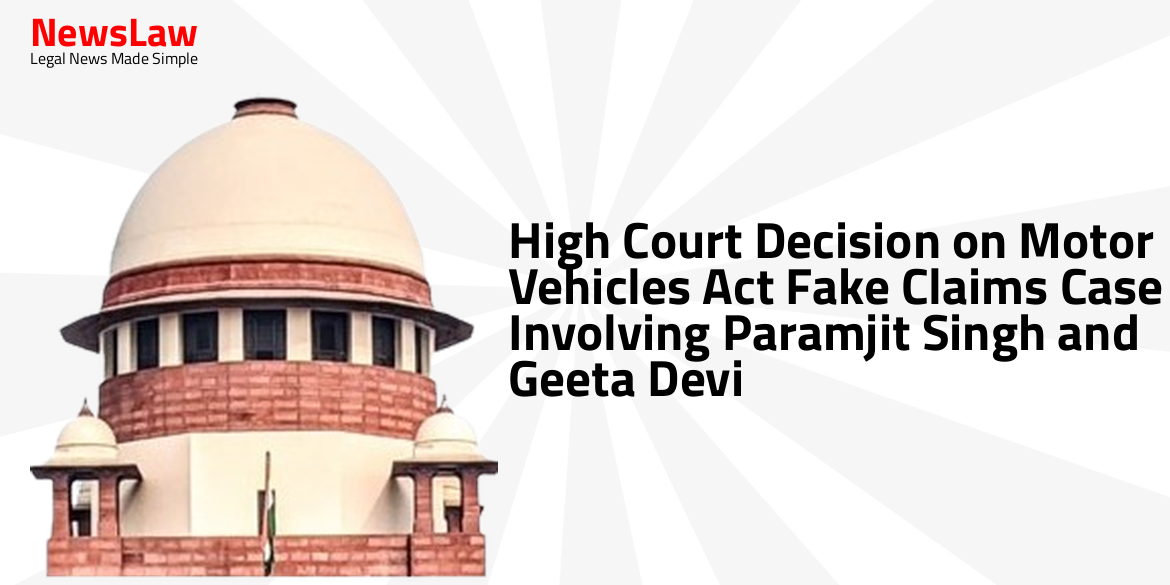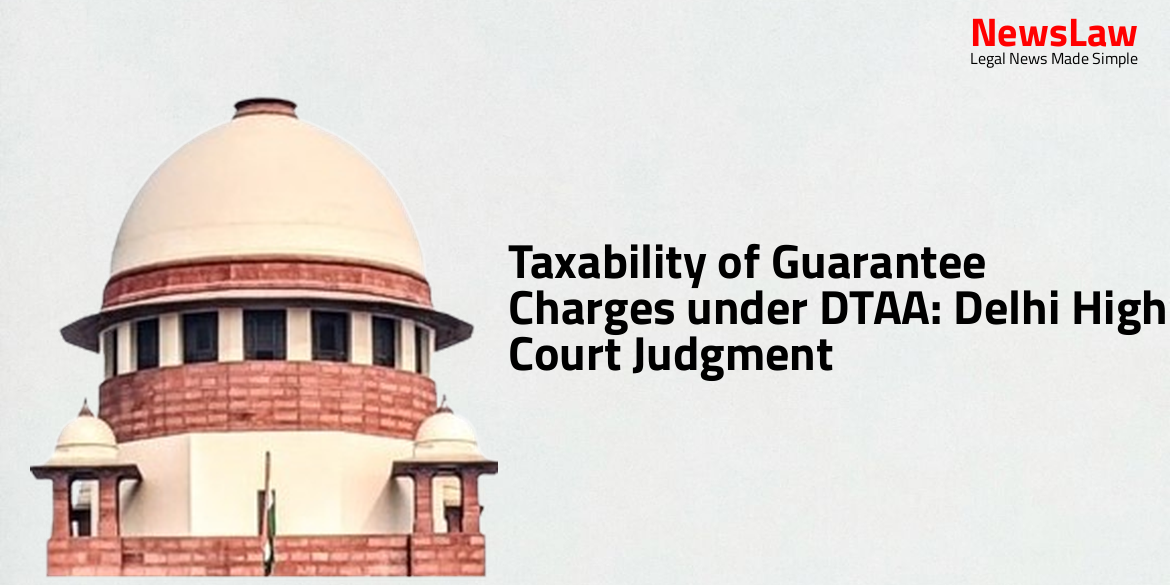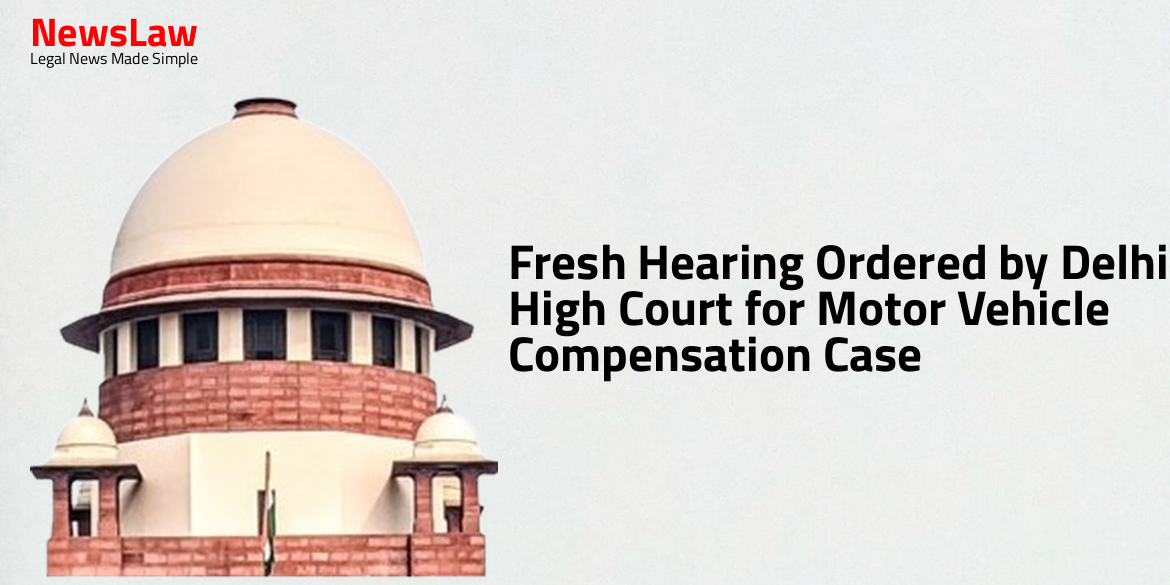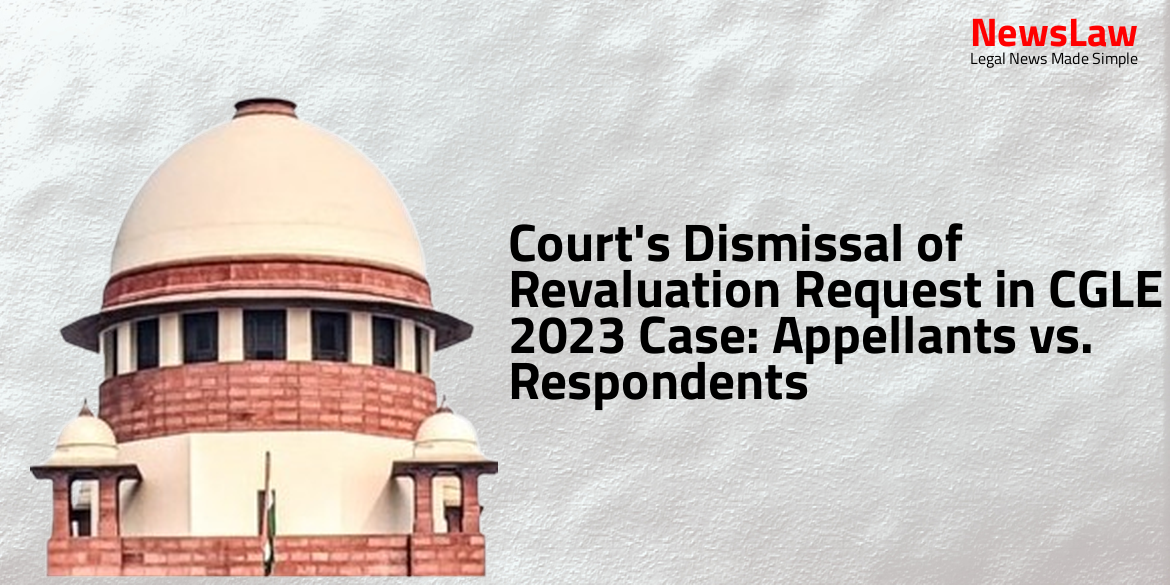A significant legal development from the Delhi High Court regarding a case involving fake claims under the Motor Vehicles Act, focusing on the individuals Paramjit Singh and Geeta Devi. The judgment delves into the complexities of fraudulent compensation petitions and underlines the importance of adherence to legal regulations and procedural requirements. Stay updated on this crucial decision.
Facts
- The accident occurred on 13.07.2019 involving a bus driver named Paramjit Singh driving recklessly, leading to the bus overturning.
- An FIR was registered under Sections 279/304-A/337/338 IPC at PS Thanesar Sadar, Kurukshetra after the accident.
- The driver, Paramjit Singh, attempted to overtake another vehicle, causing the bus to hit the curb and the railing, resulting in the bus overturning.
- Geeta Devi died in the accident due to the bus catching fire, while other passengers sustained severe injuries.
- The claim petition was filed on 22.04.2022, nearly three years after the accident occurred on 13.07.2019.
- Concerns were raised about potential fake and fabricated claims under the Motor Vehicles Act.
- Instances of fake claim cases were highlighted, indicating a widespread issue that required investigation and prevention.
- Specific details about the individuals involved in the accident were provided, including their addresses.
- The claim petition was submitted by a resident of Karol Bagh, Delhi, within the tribunal’s jurisdiction.
Arguments
- Modus operandi of advocates for filing fake cases under Motor Vehicles Act and Workmen Compensation Act discussed in detail.
- Various fraudulent practices identified in filing compensation petitions, such as conversion of non-road accident injury-death into road accident claims, fraudulent implantation of vehicles, false implantation of drivers, claimant implantation, and multiple claims at different locations for the same accident.
- Instances of filing claim applications before multiple MACT Tribunals and authorities under the Employees Compensation Act.
- Cases involving fake or fabricated insurance policies and income/medical documents for exaggerated compensation discussed.
Analysis
- The claim petition was filed two years and eleven months after the accident in question, without essential documents like certified copies of Final Report/Charge-Sheet
- No certified copy of the FIR placed on record, raising suspicion on the correctness of the version presented
- Lack of essential documents like Statements of Witnesses, Mechanical Inspection Reports, Seizure Memo of the bus, etc., indicate incomplete material before the Tribunal
- Suggestions and directions from the learned Amicus Curiae and Delhi High Court regarding expediting compensation adjudication process
- Concerns raised about fabrication of claims involving connivance of vehicle owners, drivers, and advocates for fraudulent compensation petitions
- Lack of compliance with procedural requirements under Section 158(6) of the Motor Vehicles Act
- Dismissal of the Claim Petition due to the incomplete record and failure to provide necessary documents and information
- Initiation of specific directions to Police Authorities and Claims Tribunals for improved implementation of legal provisions
- The provisions of the Motor Vehicles Act regarding intimation of accidents to Claims Tribunals and Insurance Companies within 24 hours have not been implemented effectively by the police and Motor Accidents Claims Tribunals.
- The Court emphasized the importance of complying with Section 158(6) of the Act and Rule 150 of the Central Motor Vehicle Rules, 1989.
- Periodical checks by Inspector Generals of Police were directed to ensure compliance with reporting requirements.
- Concern was expressed about the misdirection of compensation amounts due to exploitation and lack of safeguards, especially for uneducated victims and their families.
- Appointment of Amicus Curiae was requested to find solutions for these issues.
- The need for faithful implementation of provisions to ensure timely compensation to victims was highlighted.
- Strict action was advised against officials failing to comply with reporting and compensation procedures.
- Legislative changes were mentioned to expedite the process of compensation determination and decrease pendency of claim cases.
- Reports of malpractices involving fake claims and siphoning of insurance amounts were acknowledged, and the importance of addressing such issues was underlined.
- Police to notify the first date of hearing to the victim or victim’s family and the driver, owner, and insurer.
- The notification is to be provided by the police regarding the hearing fixed by the Tribunal.
- Victim’s family to be informed in case of death of the victim.
- All claimants affirmed on affidavit that they had not filed any petition elsewhere regarding the motor accident in Kurukshetra, Haryana.
- The claimants are permanent residents of Delhi, establishing the jurisdiction of the Tribunal.
- The Investigating Officer’s non-compliance with Section 158(6) of MV Act does not prejudice the claimants’ pursuit of their claim petitions as per the law.
Decision
- The parties are required to appear before the Tribunal on 03.06.2024 for further hearing.
- A total of 11 revision petitions were filed.
- Any necessary compliance should be ensured by the parties.
- The decision made in 2022 has been set aside.
- No opinion on the merits of the case has been expressed.
- Applicants/petitioners must submit all relevant documents by the next hearing date.
- The matter has been sent back to the Tribunal for a fresh hearing and legal proceedings.
Case Title: JAGRIT GUPTA Vs. PARAMJIT SINGH & ORS. (2024:DHC:3951)
Case Number: C.R.P.-155/2022



